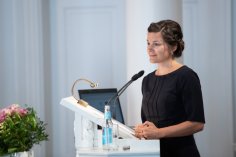-
Humanitaarteaduste ja kunstide valdkondJakobi 2, r 116-121 51005 Tartu linn, Tartu linn, Tartumaa ESTJakobi 2 51005 Tartu linn, Tartu linn, Tartumaa ESTJakobi 2, IV korrus 51005 Tartu linn, Tartu linn, Tartumaa ESTJakobi 2, III korrus, ruumid 302-337 51005 Tartu linn, Tartu linn, Tartumaa ESTÜlikooli 16 51003 Tartu linn, Tartu linn, Tartumaa ESTLossi 3 51003 Tartu linn, Tartu linn, Tartumaa ESTÜlikooli 18 50090 Tartu linn, Tartu linn, Tartumaa ESTPosti 1 71004 Viljandi linn, Viljandimaa ESTJakobi 2 51005 Tartu linn, Tartu linn, Tartumaa ESTJakobi 2 51005 Tartu linn, Tartu linn, Tartumaa ESTSotsiaalteaduste valdkondLossi 36 51003 Tartu linn, Tartu linn, Tartumaa ESTJakobi 5 51005 Tartu linn, Tartu linn, Tartumaa ESTLossi 36, ruum 301 51003 Tartu linn, Tartu linn, Tartumaa ESTNarva mnt 18 51009 Tartu linn, Tartu linn, Tartumaa ESTNäituse 2 50409 Tartu linn, Tartu linn, Tartumaa ESTNäituse 20 - 324 50409 Tartu linn, Tartu linn, Tartumaa ESTLossi 36 51003 Tartu linn, Tartu linn, Tartumaa ESTRaekoja plats 2 20307 Narva linn, Ida-Virumaa ESTRingi 35 80012 Pärnu linn, Pärnu linn, Pärnumaa ESTLossi 36 51003 Tartu linn, Tartu linn, Tartumaa ESTLossi 36 51003 Tartu linn, Tartu linn, Tartumaa ESTMeditsiiniteaduste valdkondRavila 19 50411 Tartu linn, Tartu linn, Tartumaa ESTBiomeedikum, Ravila 19 50411 Tartu linn, Tartu linn, Tartumaa ESTNooruse 1 50411 Tartu linn, Tartu linn, Tartumaa ESTL. Puusepa 1a 50406 Tartu linn, Tartu linn, Tartumaa ESTL. Puusepa 8 50406 Tartu linn, Tartu linn, Tartumaa ESTRavila 19 50411 Tartu linn, Tartu linn, Tartumaa ESTUjula 4 51008 Tartu linn, Tartu linn, Tartumaa ESTRavila 50411 Tartu linn, Tartu linn, Tartumaa ESTRavila 19 50411 Tartu linn, Tartu linn, Tartumaa ESTLoodus- ja täppisteaduste valdkondVanemuise 46 - 208 51003 Tartu linn, Tartu linn, Tartumaa ESTNarva mnt 18 51009 Tartu linn, Tartu linn, Tartumaa ESTRiia 23b/2 51010 Tartu linn, Tartu linn, Tartumaa ESTMäealuse 14 12618 Tallinn, Harjumaa ESTRavila 14a 50411 Tartu linn, Tartu linn, Tartumaa ESTNarva mnt 18 51009 Tartu linn, Tartu linn, Tartumaa ESTRiia 23, 23b - 134 51010 Tartu linn, Tartu linn, Tartumaa ESTObservatooriumi 1 61602 Tõravere alevik, Nõo vald, Tartumaa ESTNooruse 1 50411 Tartu linn, Tartu linn, Tartumaa ESTJ. Liivi tn 2 50409 Tartu linn, Tartu linn, Tartumaa ESTVanemuise 46 51003 Tartu linn, Tartu linn, Tartumaa ESTVanemuise 46 51003 Tartu linn, Tartu linn, Tartumaa ESTNooruse 1 50411 Tartu linn, Tartu linn, Tartumaa ESTAkadeemilise sekretäri tegevusvaldkondLossi 3 51003 Tartu linn, Tartu linn, Tartumaa ESTUppsala 6, Lossi 36 51003 Tartu linn, Tartu linn, Tartumaa ESTFinantsjuhi tegevusvaldkondÜlikooli 17 51005 Tartu linn, Tartu linn, Tartumaa ESTJakobi 4 51005 Tartu linn, Tartu linn, Tartumaa ESTKantsleri tegevusvaldkondUppsala 10 51003 Tartu linn, Tartu linn, Tartumaa ESTÜlikooli 18A (III korrus) 51005 Tartu linn, Tartu linn, Tartumaa ESTÜlikooli 18, ruumid 102, 104, 209, 210 50090 Tartu linn, Tartu linn, Tartumaa ESTTeadusprorektori tegevusvaldkondW. Struve 1 50091 Tartu linn, Tartu linn, Tartumaa ESTArendusprorektori tegevusvaldkondNarva mnt 18 51009 Tartu linn, Tartu linn, Tartumaa ESTVanemuise 46 51003 Tartu linn, Tartu linn, Tartumaa ESTLossi 25 51003 Tartu linn, Tartu linn, Tartumaa ESTRektori tegevusvaldkondÜlikooli 18 50090 Tartu linn, Tartu linn, Tartumaa ESTÕppeprorektori tegevusvaldkondUppsala 10 51003 Tartu linn, Tartu linn, Tartumaa ESTÜlikooli 18b 51005 Tartu linn, Tartu linn, Tartumaa ESTLossi 36-401 51003 Tartu linn, Tartu linn, Tartumaa EST
Open lecture on uses of cinema in literary works
On September 10th 2018 at 18.15, the UT College of Foreign Languages and Cultures is holding its third research seminar
Professor Sara Bédard-Goulet is giving an open lecture titled “Uses of Cinema in Les Grandes Blondes and Envoyée Spéciale by Jean Echenoz".

Sara Bédard-Goulet has summarised the lecture as follows:
“In this paper, I will analyse how the cinematographic image can be included in literary works and, more particularly, how it affects contemporary narratives in Jean Echenoz’s novels Les Grandes blondes (1995, translated in English as Big Blondes in 1997) and Envoyée spéciale (2016, translated in English as Special Envoy in 2017). This contemporary French author sustains tight links with cinema, whether through direct references – to certain films, such as Alfred Hitchcock’s – or indirect ones, to film genres (road movie, adventure or spy movies, etc.) or through “cinematographic metalanguage”, which transforms characters into actors and their environment in a set. However, his works cannot be considered within the scope of remake, since they do not aim to re-present entire film sequences nor do they try to extend them. Although, in the context of cinema recycling and re-use, we can consider these novels through what Nicolas Bourriaud calls, in the field of contemporary art, “postproduction” and use this concept in order to identify the stakes and forms of cinema uses in both novels, as well as their effect on the readers.”
Sara Bédard-Goulet is Professor of Romance Studies* at the University of Tartu.
The lecture is held in UT's Jakobi 2 building, room 114. Wine and snacks are served and attendance is open to all.
The Research Seminar of the College of Foreign Languages and Cultures is a new, interdisciplinary seminar at the University of Tartu, organised by the professors of the college. It aims to be a forum for scholarly discussion and presentation of ongoing research.
The position of the professor of Romance Studies is financed by the European Union Regional Development Fund through University of Tartu's ASTRA project “PER ASPERA”.


